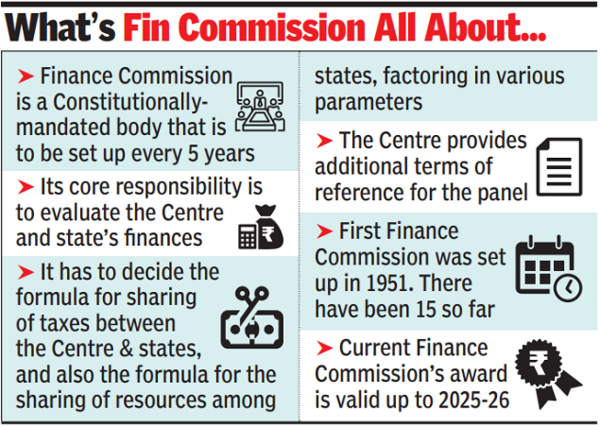While the 15th Finance Commission’s award is valid up to the 2025-26 financial year, the Centre is keen to ensure that the next panel gets adequate time to deal with the issues and submit its recommendations. The last commission was impacted by the pandemic, which resulted in two sets of recommendations – one for FY 2020-21 and the second for 2021-26. Besides, Jammu & Kashmir and Ladakh were carved out as separate union territories during the tenure of the last Finance Commission.
For any Finance Commission, the main item on the agenda is the sharing of resources between the Centre and the states, which is currently fixed at 41.5% of the divisible pool. Along with funds that are to be transferred directly to the third tier, the Centre often complains that it is hardly left with money, especially when a large part of the expenditure in sectors such as health and education is also incurred by it.

On their part, states – especially those ruled by the Opposition – have been complaining about scarcity of funds, although they are accused of being extravagant. In fact, policymakers and experts view freebies as one of the key challenges before the states, an issue on which the Centre has already expressed its concern. In fact, they see it as an issue on which the Commission’s assessment will be crucial. A related issue will be the old pension scheme, which is sought to be brought back in several states.
With Covid pushing up borrowings, the cap on them suggested by the 15th Finance Commission has also not been implemented with several states in breach of the limit. For the states, a key issue will be life after GST rollout given that the compensation for “losses” (basically for annual growth under 14%) has come to an end. While finalising the terms of reference, the government will also have to look for a chairman and members, which is already a matter of discussion.

